20. Falling Down (1993)
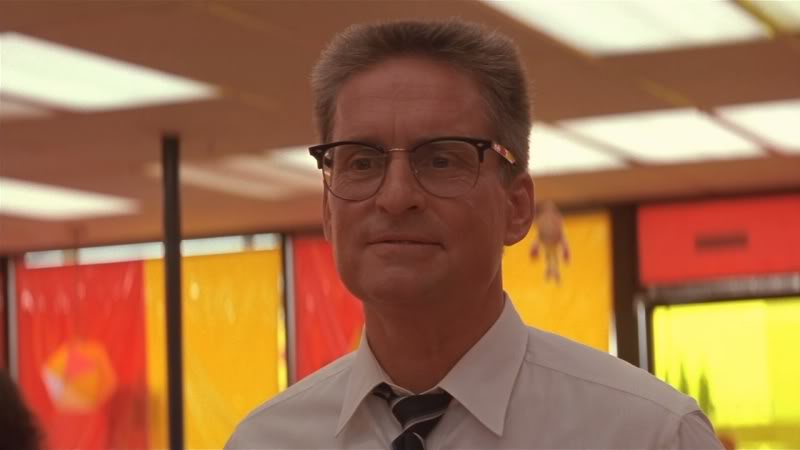
Easily director Joel Schumacher’s best film and star Michael Douglas’ best performance, Falling Down is an angry, pessimistic look at 1990’s Los Angeles/America.
Douglas is an unemployed defense worker who gets fed up during a traffic jam one day, abandons his car, and proceeds to have a one-on-one nightmare with some of the major problems in American society (stark racism, ignorant homophobia, false advertising, biased laws, entitled homeless people, entitled rich people, the dwindling existence of everyday citizens’ rights, etc.) on his long walk home.
While the movie finds great, meaty humor in seeing Douglas lose it and do all the things we wish we could do on a bad day, Falling Down only becomes great when it shows the audience that Douglas’ character represents the worst of all of us (and his country): he is so blinded by his own point of view that anything which crosses him to combat it is met with disorganized, reactionary, and ultimately displaced fury.
19. Gone Girl (2014)
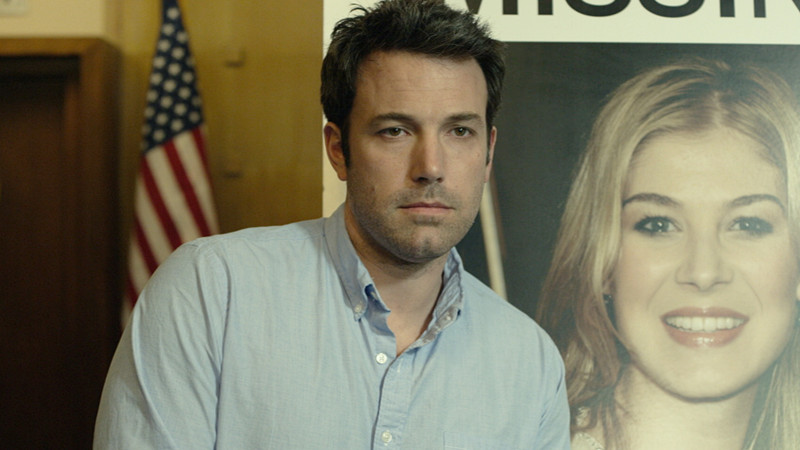
David Fincher’s adaptation of Gillian Flynn’s best-selling mystery novel doesn’t exactly scream “satire” so much as it does “thriller of the week” at first glance. As Gone Girl’s many admirers already know, however, that’s where most of it’s appeal draws from. The film and story is merely a crime caper in disguise for a much grander design and satirical target: modern-day marriage.
Nick and Amy Dunne, the lovely couple at the heart of this story (perfectly played by Ben Affleck and Rosamund Pike), are a couple of extreme sickos who lie to and play games with each other, use everyone around them to fuel their personal drama, and ultimately turn the worldwide media into their own public marriage counseling session.
It’s not a rosy-colored representation of love, to be sure, but in the eyes of Fincher and Flynn and to quote Mrs. Dunne herself: “That’s marriage.”
18. The Player (1992)
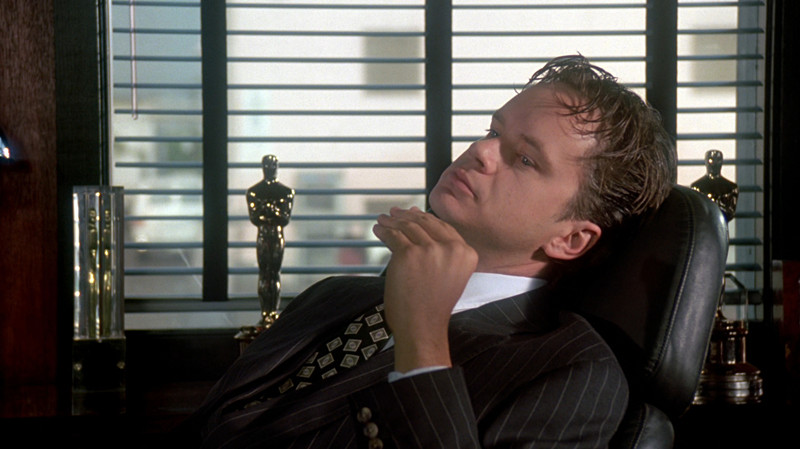
Robert Altman’s 1992 meta-film masterpiece remains to this day as the ultimate cinematic “f%&# you!” to mainstream Hollywood filmmaking. Tim Robbins stars as a Hollywood executive who starts receiving anonymous death threats from one of the thousands of disgruntled screenwriters he has rejected in the past. The film that ensues becomes the kind of movie Robbins’ character would love: it has twists, sex, violence, and an ultimately happy (though completely unwarranted) ending.
The Player becomes the Hollywood movie it is mocking in order to prove its point and, when it does, it does so with a subtly, skill, and sarcasm that makes it one of the most interestingly and hilariously self-aware films and satires ever made.
17. Django Unchained (2012)
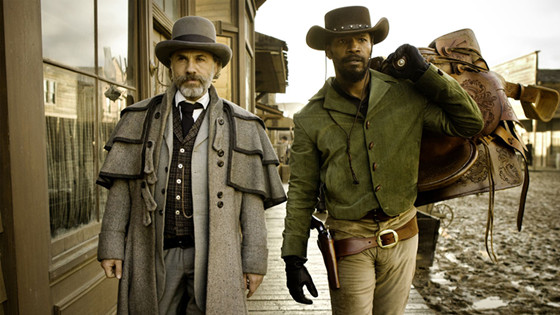
Slavery seen through the eyes of Quentin Tarantino as a spaghetti western. Vicious, wrong, cathartic, and unabashedly twisted, Django Unchained is Tarantino’s best and most daring work in years.
Where it lacks in being authentic (you have to forgive Tarantino for taking on the subject matter in the manner he does, which isn’t too hard given how well he does it, but still…), it makes up for in complete, ballsy ludicrousness. Leonardo DiCaprio captures the despicable nature of a slave owner in a committed, slimy, and creepily charismatic portrayal of white racism.
16. In The Company of Men (1997)
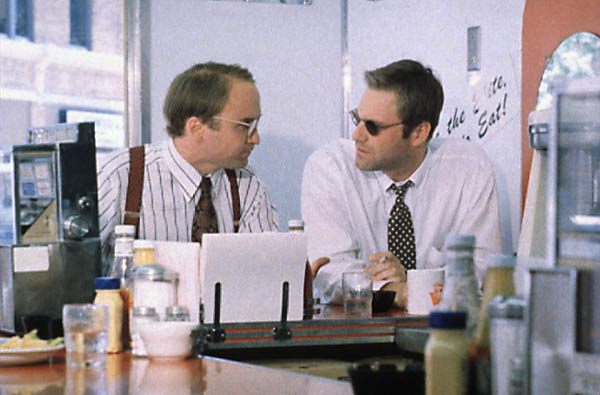
Two businessmen (Aaron Eckhart and Matt Malloy) conspire to make a deaf woman fall in love with them for the sole purpose of inflicting emotional pain on her. Neil Labute’s glaringly cruel but strangely effective exercise in overt misogyny can leave you with extraordinarily conflicting emotions. On one hand, it serves as a searing portrait/mockery of American machismo/competitiveness/male irresponsibility. On the other… It almost seems to get off on itself for doing so.
While In The Company of Men is a masterpiece in its own right, it’s not one that is fully aware of itself or what it’s true intentions are, nor does it present itself to be. Labute’s film is a downright mean piece of satire that unravels itself as what it is with no judgment or afterthought. It wouldn’t be the same sickening, wholly audacious, highly offensive, and shockingly ingenious film it is in any other way.
15, 14. Bamboozled (2000), Chi-raq (2015)
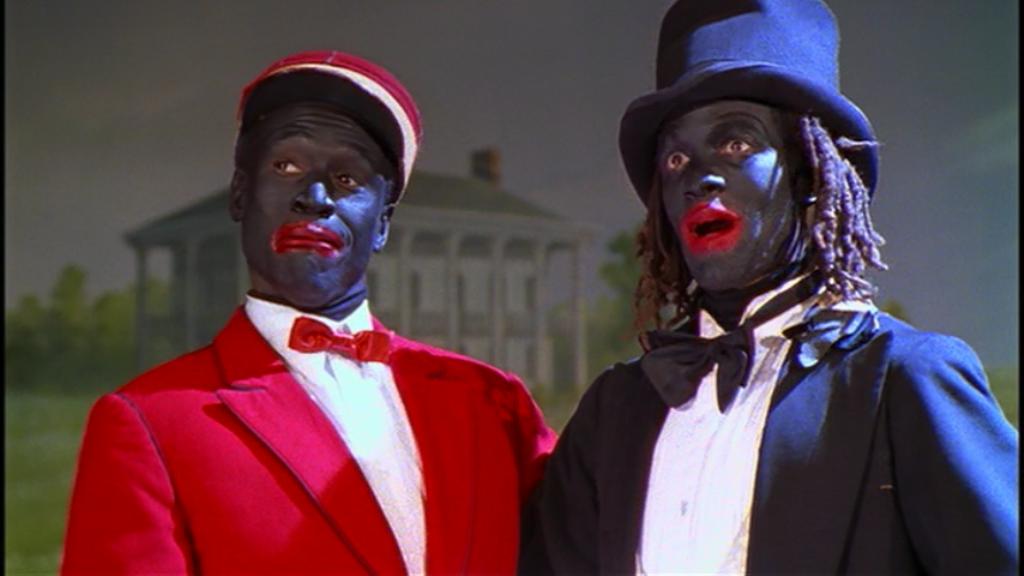
Spike Lee’s notoriety as a filmmaker has never exactly been associated with his comedic skills. This is most likely due to the audacious, socially-conscious-themed, and artistically heavy-handed tone of his best and most known dramatic works (Do The Right Thing, Malcolm X, Clockers, etc.). What makes some of his lesser-known satirical endeavors (Bamboozled and Chi-raq chief amongst them) so memorable is that he brings the same artistic voice, passion, and flaring desire to deliver controversial messages to his so-called comedies.
Bamboozled captures and examines the potential dark side of satire itself. Damon Wayans stars as a television writer who decides to give America what it wants in how its media portrays African-Americans: he satirically creates a modern blackface variety show. The problem is, no one gets the joke, the show becomes a smash hit for all the wrong reasons, and Wayans’ intellectual rationalizations for creating such a despicable work wind up eating him alive.
Lee’s presentation of our cultural decay doesn’t limit itself just to the racial themes contained in Bamboozled. It also shows us just how dangerous the very nature of satire can be within our culture. Ultimately, there is a very, very thin line between taking the time to mock something and openly celebrating it.
Chi-raq is an even stranger and bolder exercise in modern satire from Lee (an interesting statement considering it is based off of Aristophanes’ classic play, Lysistrata). While it’s unquestionably the filmmaker’s best work in years, it’s a much rockier ride than Bamboozled or any of the director’s other, most successful efforts.
Chi-raq is a powerful achievement that can’t be denied, but part of its success relies on the great many stylistic and tonal risks it takes. While some of these risks pay off greatly, others, to put it politely, don’t. The sum total of the experience, however, is one that is unlike anything else and as profound of a work as Lee has ever created.
After a young girl is killed by a stray bullet in a gang shoot-out, the women of Chicago all band together to form a sex strike against the men until the violence in their city, and subsequently the world, is resolved with a peaceful conclusion. Chi-raq’s depiction of men as simplistic, sex-starved animals is so overwrought that it’s sometimes insultingly stupid on many different levels.
Other times, it’s so spot-on with it’s observations, so uniquely and cleverly executed, and simultaneously so emotionally raw and powerful that you know you’re in the hands of someone and something great. Chi-raq is not perfect, but it is a special reminder that Spike Lee is still one of the most innovative and daring American filmmakers working today who also has a satiric voice, like his dramatic one, that is completely and entirely his own.
13. The Big Short (2015)
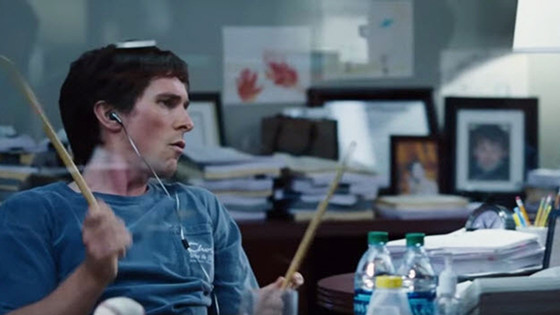
In spite of boasting one of the best-assembled ensemble casts in recent years (Christian Bale, Brad Pitt, Steve Carrell, Ryan Gosling), it is hard to make The Big Short, which is about the credit and housing bubble collapse of 2005, sound or appear appealing at first glance.
However, if there was ever a cinematic equivalent to playing “airplane” with a small child to get them to eat their vegetables, it’s Adam McKay’s compulsively watchable, The Big Short, a film which proudly boasts it’s ability to get its audience to understand and be invested in a potentially boring but highly important story.
Part history lesson, part study in economics, and part cautionary tale, the film is told with a fast-paced, rapidly edited, cleverly sarcastic, aside-favored style that showcases just how completely ridiculous it is that we’re actually watching this film in the first place. The Big Short is an important film because of it’s accomplishment in making the seemingly incommunicable into something witty, fun, and resonating.
12., 11. Starship Troopers (1997), Robocop (1987)
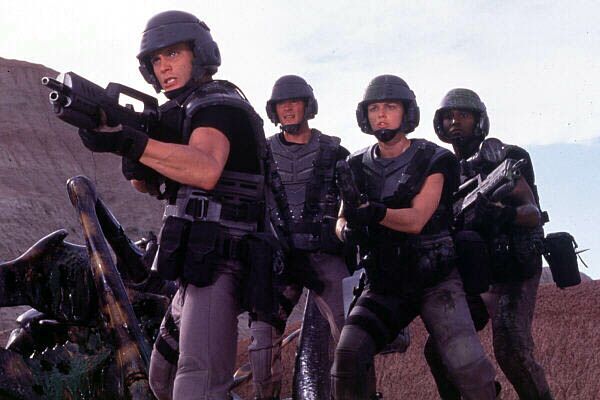
Sometimes, the most profound points of view of America can be seen through a foreign set of eyes. This is certainly the case with some of Dutch filmmaker Paul Verhoeven’s most successful Hollywood efforts. While his American career has often fallen into the bloated excess (Showgirls, Basic Instinct, etc.) his most self-aware masterpieces (Robocop and Starship Troopers) are satirizing, there is no replacing the filmmaker’s audacity and voice within studio-friendly, big-budget entertainment.
Both Starship Troopers and Robocop are, first and foremost, extraordinarily original and entertaining science-fiction/action films. They suck audiences into involving worlds, thrill them with beautifully staged and highly graphic depictions of extreme violence, and are just plain fun in their A-level presentations of seemingly B-level stories (a deceased police officer comes back to life as a cyborg, a group of teenagers leave their planet to battle giant insects).
What elevates both films to being modern masterpieces is their wonderfully quirky and darkly satiric takes on some of America’s worst qualities.
In Robocop, soulless corporations are taking over human conscience in a futuristic (for 1987, at least) Detroit. Commercialism has taken over everyone’s values, which is reflected in the perfectly timed and placed mock product commercials seen throughout the film.
Robocop presents a cold, Kubrickian reality where desensitization to violence and the devaluing of human life are two of the most prominent and disturbing symptoms of a media-clouded and utterly vapid take on the future of American culture. Robocop remains a masterwork to this day because, nearly thirty years after it’s release, it’s not just slightly terrifying to observe how accurate the film’s predictions were in coming truer and truer with every passing day.
In Starship Troopers, there is a similar quirk and tone to offset some of the extremely violent and intense events depicted within the film. This time around, Verhoeven echoes the past by recalling World War Two propaganda films with his depiction of the futuristic army enlistment videos used within the film to entice youths to join. Verhoeven, once again, explores a very codependent relationship between media and violence in his work.
In Starship Troopers, we see a breakdown of violence during wartime, starting with its glorification and ending with its ramifications. It’s never over-bearing and never loses it’s sights on primarily being escapist entertainment, but Starship Troopers, if you look just closely enough, nails something very disturbing, lasting, and prominent in America’s culture: the media’s hand in making youths ill-prepared for dealing with a reality that is much harsher than it’s ever let on as being.